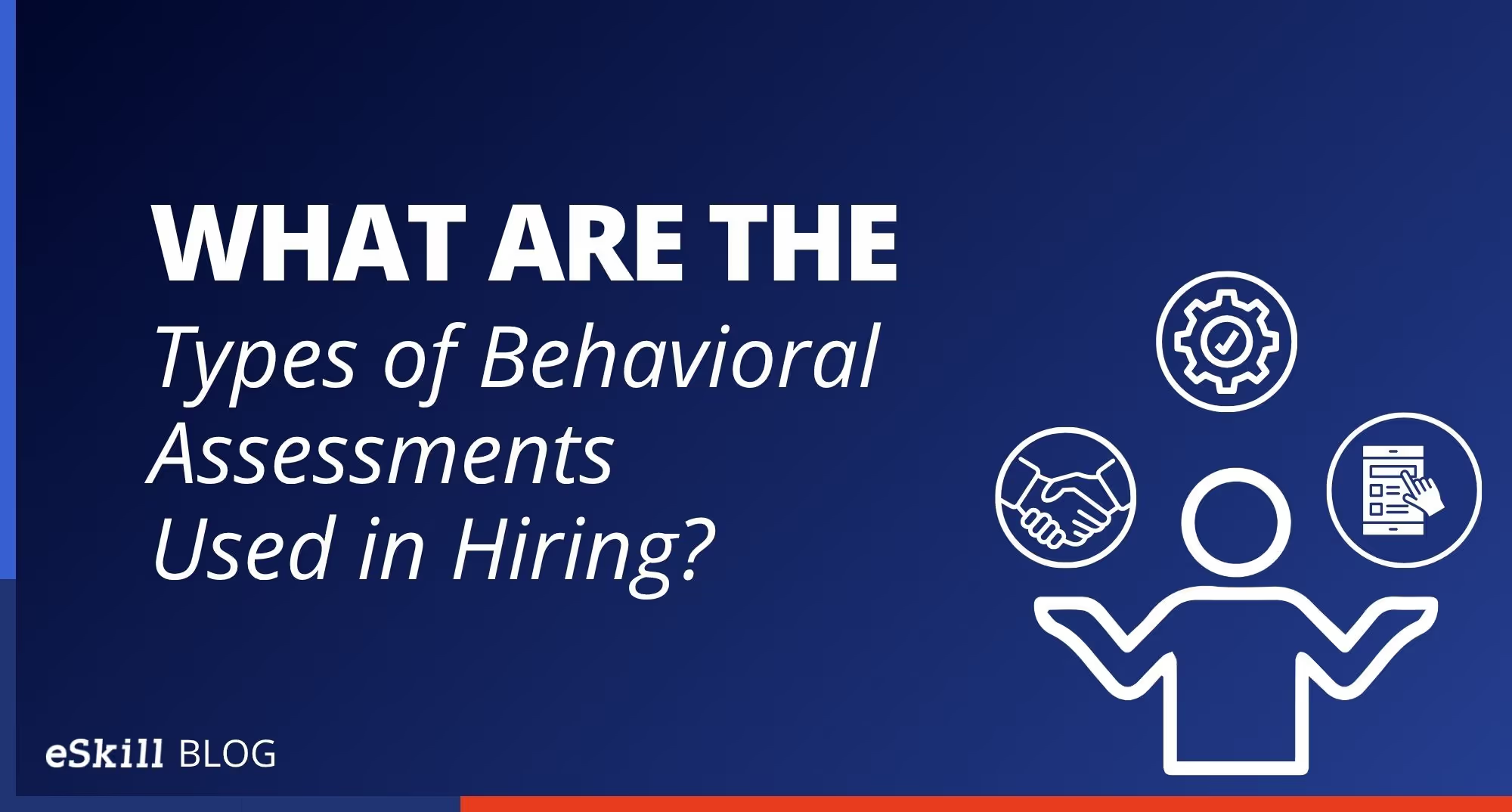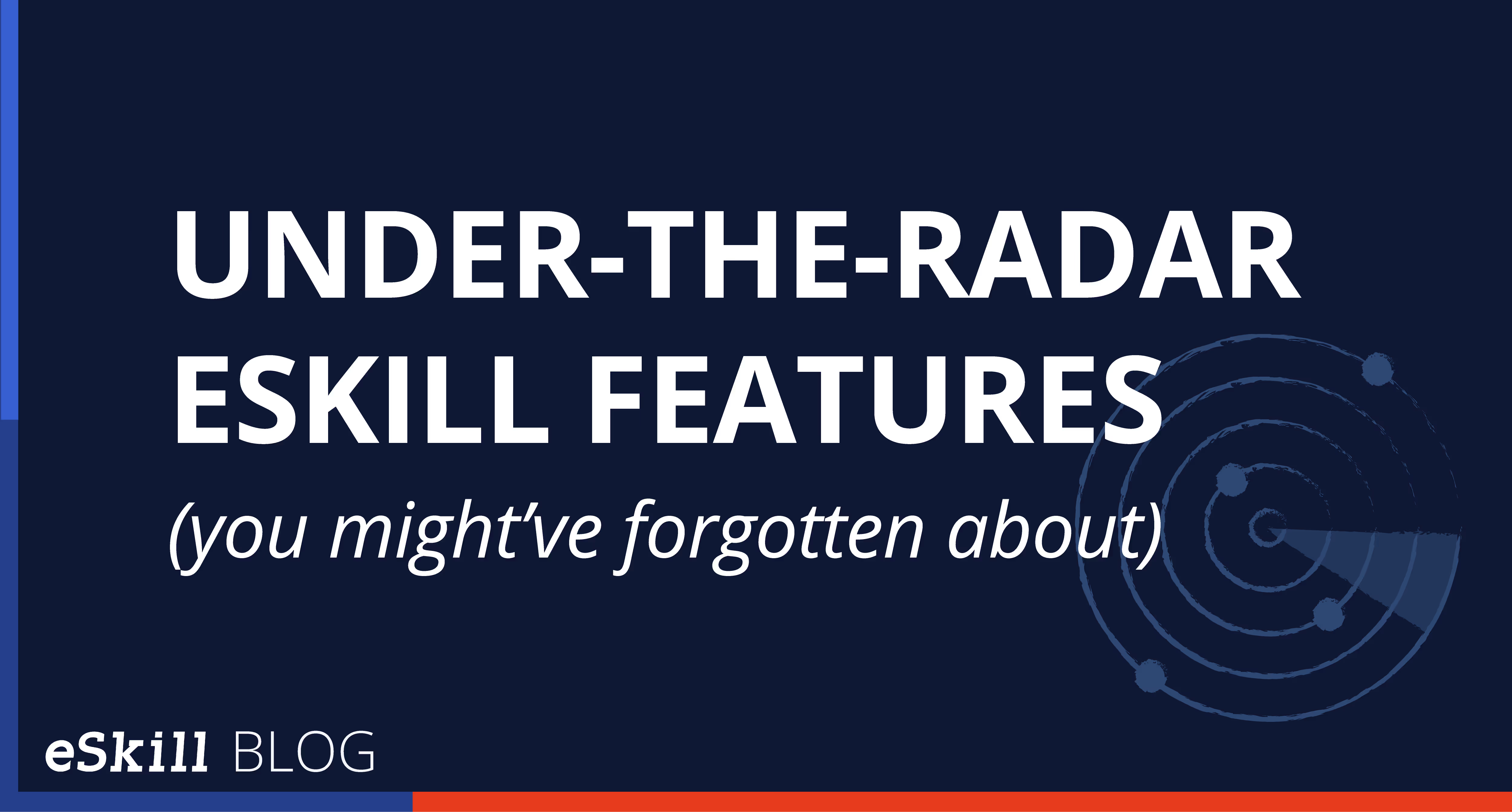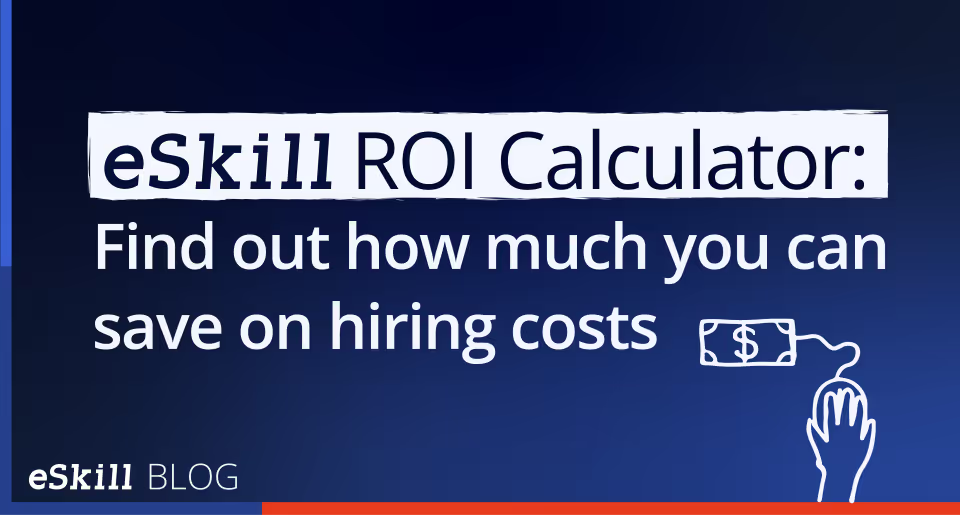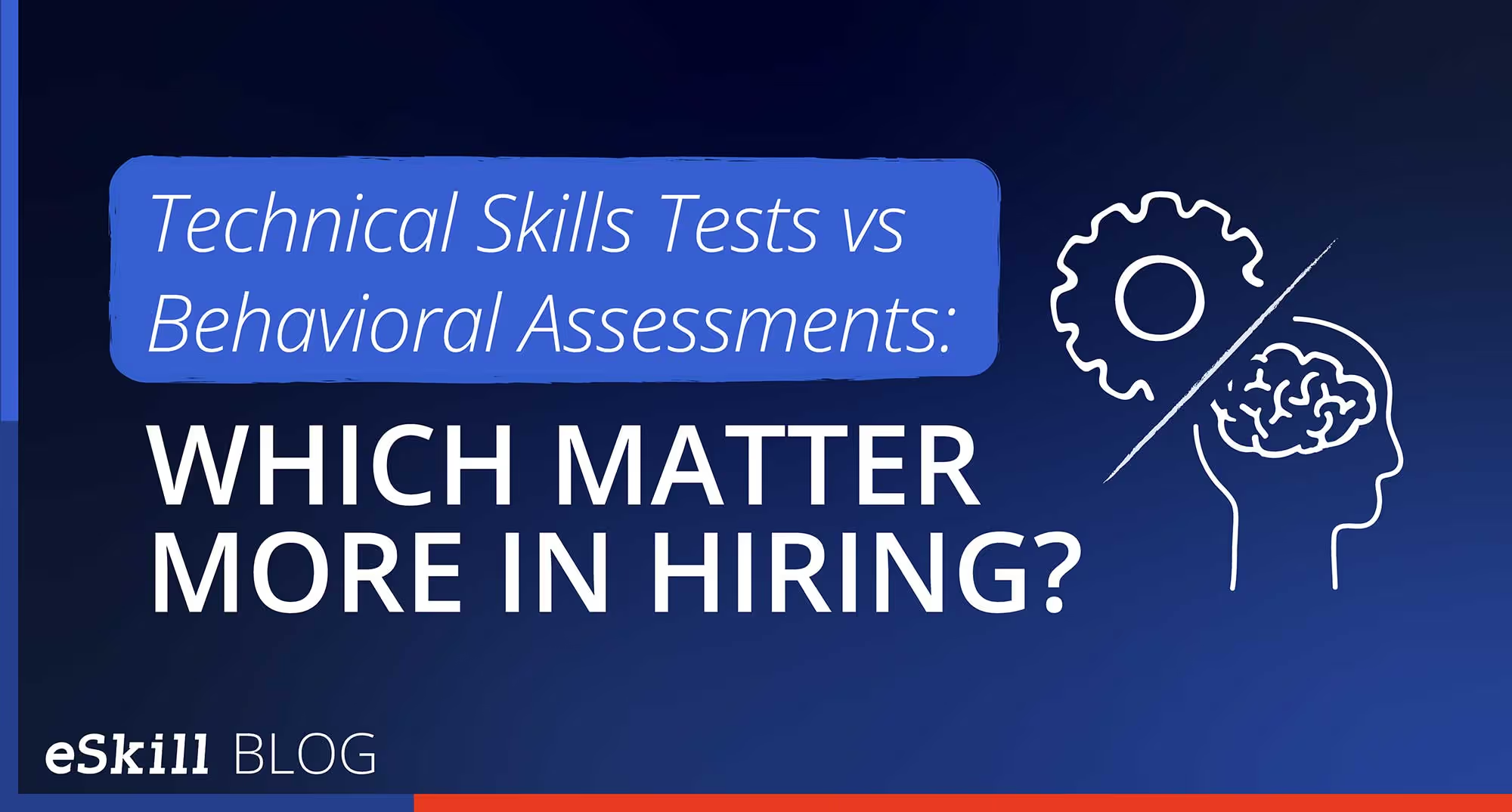If you have found that hiring has become more difficult, you are not alone. These past few years have been challenging for business leaders. They were forced to change their operations due to the COVID-19 pandemic. Many felt the impact of the Great Resignation, when millions quit their jobs. Now they are having trouble finding qualified candidates to fill critical job roles because we are in an unprecedented global talent shortage.
HR teams know skills tests help them identify candidates who can do a job. However, they also know that skills tests provide only some of the necessary information to make good hiring decisions. This is why many of them include behavior assessments in their hiring process.
A skills test shows whether a candidate can do a job, but a behavior assessment tells you whether they fit your company culture well.
What Is a Behavioral Assessment for Hiring?
HR professionals often ask, “What is a behavioral assessment?” We tell them that behavior assessments are used to evaluate candidates’ personalities and behavior traits. They are popular with business leaders because they provide insight into candidates’ attitudes, values, and motivations. This enables them to determine which candidates best fit their company culture.
Behavior assessments measure personality and behavior traits like the following, so HR leaders predict how they will perform on the job:
- Integrity: Will the applicant adhere to and follow the rules and policies?
- Grit: How likely is the candidate to work diligently to meet goals and objectives?
- Extroversion: Is the prospective new hire energetic, outgoing, or more reserved?
- Conscientiousness: Does the applicant tend to be thorough, organized, and careful?
- Work Ethic: Will you be able to depend on the new hire to do what is expected of them?
Four Types of Behavioral Assessment
There are four types of behavioral assessments. You and your hiring team can determine which will best meet your needs.
- Personality Assessments: Personality assessments, such as Meyers-Briggs, DISC, Enneagram, and Big 5 tests, allow hiring teams to analyze candidates’ behavior traits, preferences, and tendencies and determine whether they are a good fit for a job and corporate culture.
- Simulations: Simulations present candidates with job-related tasks so hiring managers can see how they will perform if hired. For example, applicants for software engineering or computer programming jobs might be asked to write or debug code, and candidates for a technical writing position could be asked to write a few paragraphs that describe the company’s products or services.
- Situational Judgment Tests: Situational Judgment Tests (SJTs) give candidates job-related scenarios and problems and ask them to choose the best and most appropriate solution from a given set of options. Many business leaders think SJTs are an excellent tool for evaluating candidates’ critical thinking, problem-solving, and decision-making skills and seeing how they will handle real work situations.
- Behavioral Interviews: During a behavioral interview, candidates can demonstrate they can do a job by providing specific examples of work problems and situations they have encountered in the past and explaining how they solved them. Hiring teams can evaluate their responses and use them as indicators of future performance.
Why You Need Behavioral Assessments
When evaluating job candidates, hiring teams focus on hard skills. While there is no denying that hard skills are important, they should not underestimate the importance of soft skills, which a behavior assessment measures. These are some ways organizations benefit by using them.
- Determine Cultural Fit: You can give employees the resources and tools to do their jobs, but you cannot teach them to align with your cultural values. Behavior assessments help you identify candidates whose values, attitudes, and priorities are compatible with yours.
- Predict Future Performance: Behavioral assessments predict long-term performance by measuring traits that remain relatively stable throughout a person’s life, like emotional intelligence, cognitive skills, and temperament.
- Improve Employee Retention: According to the Society of Human Resource Management (SHRM), filling an open position takes an average of 36 days. Behavior assessments help you compare candidates’ results quickly and easily so you can hire employees likely to stay with your company.
- Identify Candidates with Specific Traits: People do their best work when like-minded individuals surrounding them. Behavior assessments help you build a team that works well together based on preferred personality traits, temperament, and interests.
- Improve Employee Development: Sharing behavior assessment results with managers helps them decide how to coach their staff and provide feedback. Managers can personalize their style and approach to better communicate with their employees.
Get Started with Behavioral Assessments
Hiring a candidate whose skills test results indicate they are a perfect hire could be a big mistake if their personality is not a good fit for your company culture. Behavior assessments help you minimize hiring mistakes that can hurt team synergy, harm customer relationships, and cause stress for other employees.
Are you ready to learn how behavioral assessments can help minimize costly hiring mistakes and improve hiring organization-wide? Contact us to request a demo.

Get ademo.






